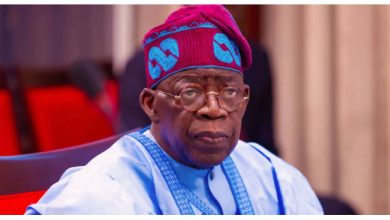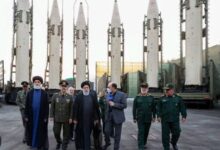What Republic of Niger did to UN chief over General Assembly ‘obstruction’

By KEMI KASUMU with agencies
The military government of the Republuc of Niger has accused the head of the United Nations on Friday of obstructing their participation in the body’s General Assembly.
It said the attitude of the UN leadership was “likely to undermine any effort to end the crisis in our country”.
It will be recalled soldiers of presidential guard in Niamey, the Niger’s capital, ousted President Mohamed Bazoum on Wednesday July 26, 2023 and have since detained him at home with his family.
Negotiations to restore civilian rule have yet to bear fruit, with the regime announcing a three-year transition and the Economic Community of West African States (ECOWAS) rejecting it, calling for the immediate return of the democratically elected president, Bazoum.
The coup has also been strongly criticised by Western governments and global bodies with the exception of the global south nations in charge of the new world order namely Russia and China and several ECOWAS-member countries including the neighbouring Republic Chad, Republic of Mali, Rebublic of Burkina Faso and Republic Guinea standing with the Nigerien military regime.
The coup, considered to be a paradigm shift resulting to a wind of change blowing across mainly all Francophone countries of the Sahel region, has spread to the Central African subregion with Republic of Gabon falling to military rule while others are believed to be in the pipeline.
However, the western nations bloc on which side the UN, which is holding its General Assembly of world leaders in New York this week, is tilted is backing ECOWAS but the emerging powers of the new world order are solidly behind the Niger, with strong warning against use of force in the country.
In a news release read on public television, the military regime said UN Secretary-General Antonio Guterres “went astray in the exercise of his mission by obstructing Niger’s full participation in the 78th session of the UN General Assembly”.
It criticised “the perfidious actions” of the UN leader, adding that they were “likely to undermine any effort to end the crisis in our country”.
Bakary Yaou Sangare, who before the coup was Niger’s ambassador to the UN and is now its foreign minister, was the new leaders’ chosen representative for the gathering.
But, according to a diplomatic source, there was also an application by the overthrown government to represent Niamey.
“In case of competing credentials from a Member State the secretary-general defers the matter to the Credentials Committee of the General Assembly who will deliberate on the matter,” Guterres’ spokesman Stephane Dujarric said.
“The secretary-general does not decide.”
Because the committee will not meet until later, no representative from Niger was added to the speakers’ list.
Niger “forcefully rejects and denounces this clear interference by Mr Guterres in the internal affairs of a sovereign state”, the junta said.
Worries over Sahel
One of the world’s poorest nations, Niger is the fourth country in West Africa to suffer a coup since 2020, following Burkina Faso, Guinea and Mali.
Bazoum’s removal heightened international worries over the Sahel region, which faces growing jihadist insurgencies linked to Al-Qaeda and the Islamic State group.
Regional sanctions since the coup mean food and medicines are scarce in landlocked Niger, prices are skyrocketing and there are blackouts after Nigeria cut electricity supplies.
Senegal’s President Macky Sall said on Thursday a diplomatic solution in Niger was “still possible”.
“I hope that reason will ultimately prevail… that it is still possible to move forward reasonably to a solution,” Sall said in an interview with France’s RFI and France 24 media outlets.
He urged Niger’s coup leaders “to not push (us) to the final decision which would be a military intervention”.
The military leaders of Mali, Burkina Faso and Niger signed a mutual defence pact this month, saying they aimed to “establish an architecture of collective defence and mutual assistance for the benefit of our populations”.
The DEFENDER/AFP









